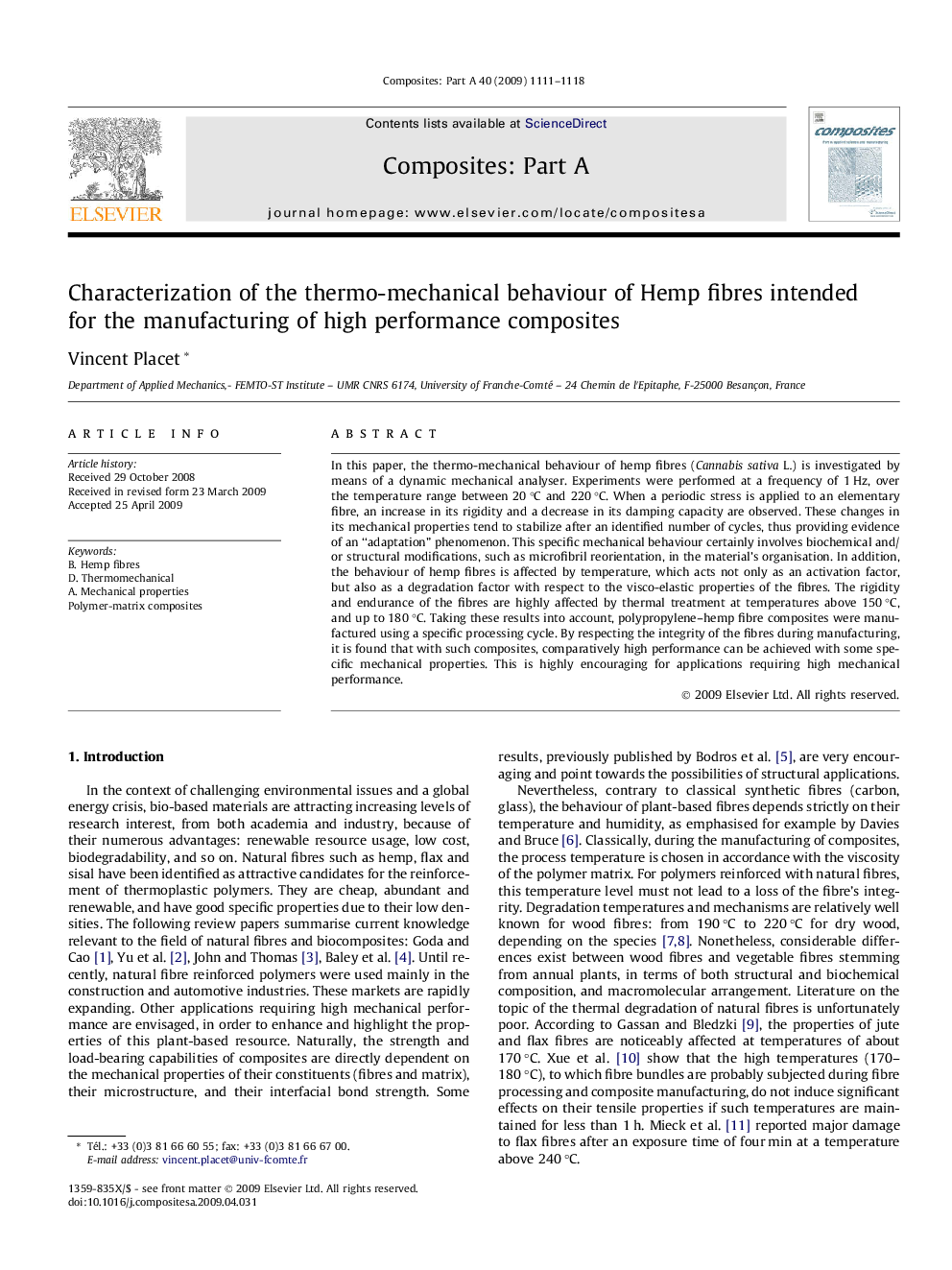| Article ID | Journal | Published Year | Pages | File Type |
|---|---|---|---|---|
| 1467392 | Composites Part A: Applied Science and Manufacturing | 2009 | 8 Pages |
In this paper, the thermo-mechanical behaviour of hemp fibres (Cannabis sativa L.) is investigated by means of a dynamic mechanical analyser. Experiments were performed at a frequency of 1 Hz, over the temperature range between 20 °C and 220 °C. When a periodic stress is applied to an elementary fibre, an increase in its rigidity and a decrease in its damping capacity are observed. These changes in its mechanical properties tend to stabilize after an identified number of cycles, thus providing evidence of an “adaptation” phenomenon. This specific mechanical behaviour certainly involves biochemical and/or structural modifications, such as microfibril reorientation, in the material’s organisation. In addition, the behaviour of hemp fibres is affected by temperature, which acts not only as an activation factor, but also as a degradation factor with respect to the visco-elastic properties of the fibres. The rigidity and endurance of the fibres are highly affected by thermal treatment at temperatures above 150 °C, and up to 180 °C. Taking these results into account, polypropylene–hemp fibre composites were manufactured using a specific processing cycle. By respecting the integrity of the fibres during manufacturing, it is found that with such composites, comparatively high performance can be achieved with some specific mechanical properties. This is highly encouraging for applications requiring high mechanical performance.
